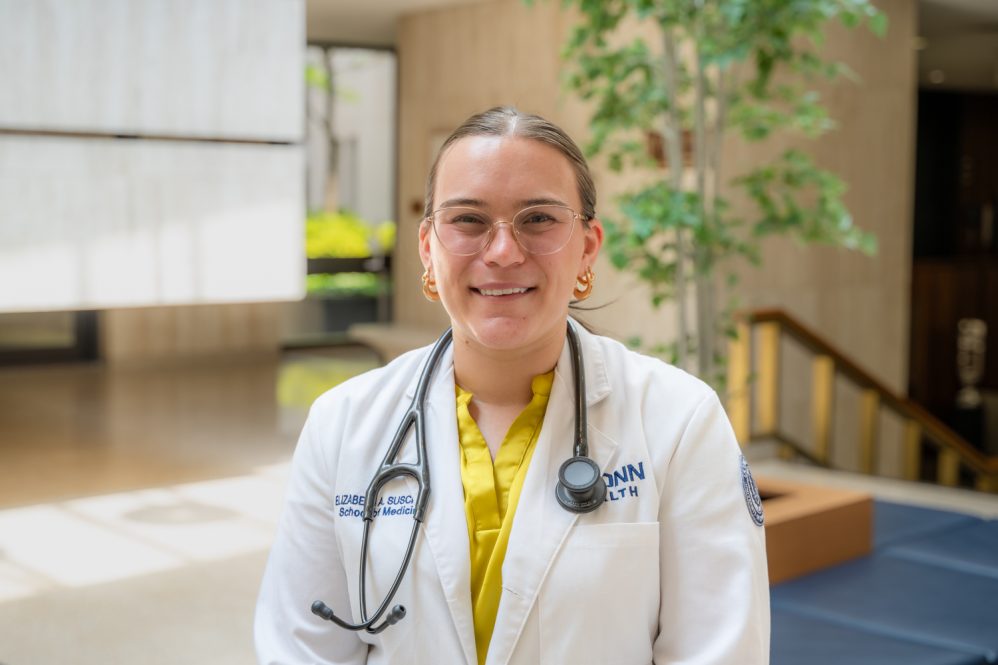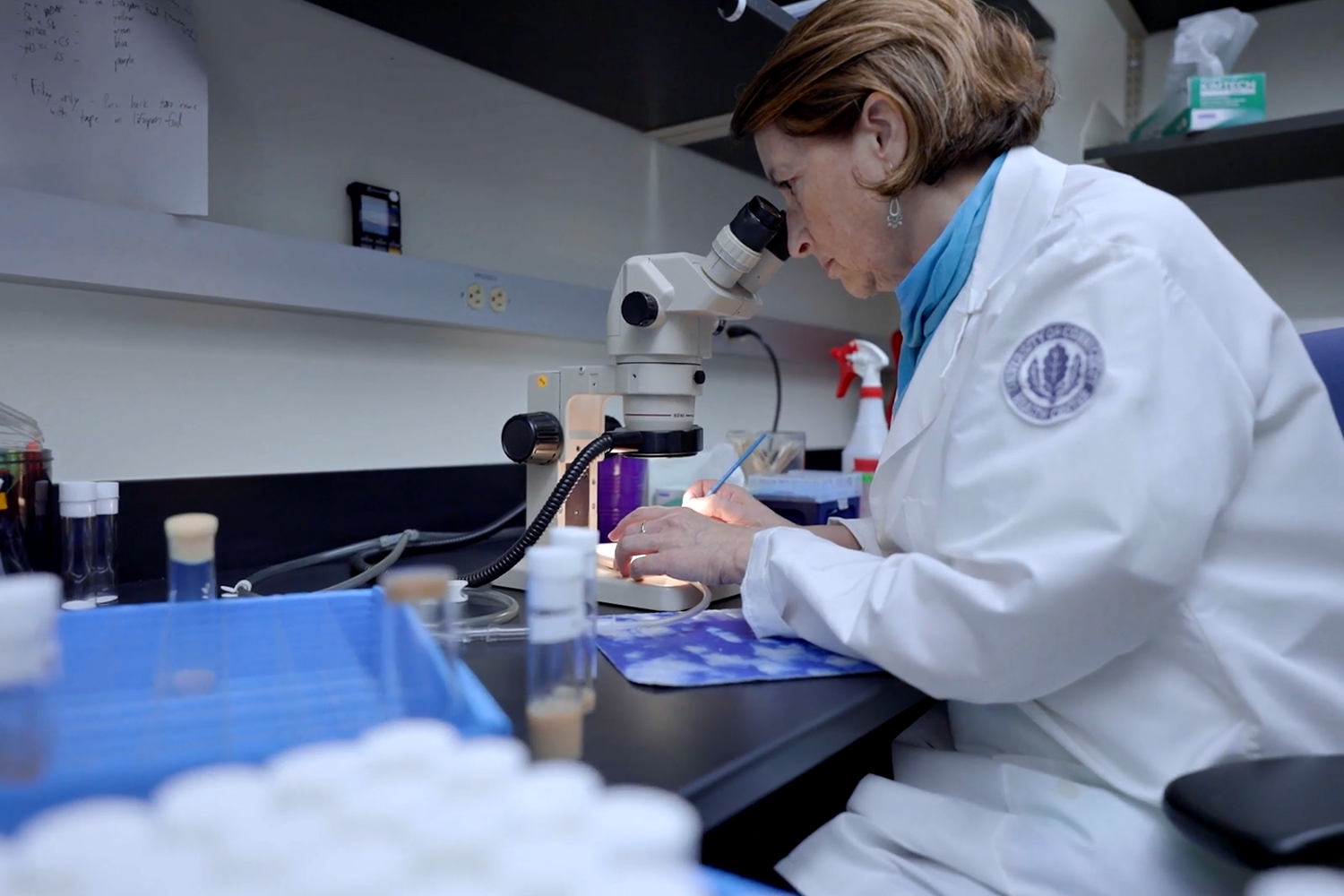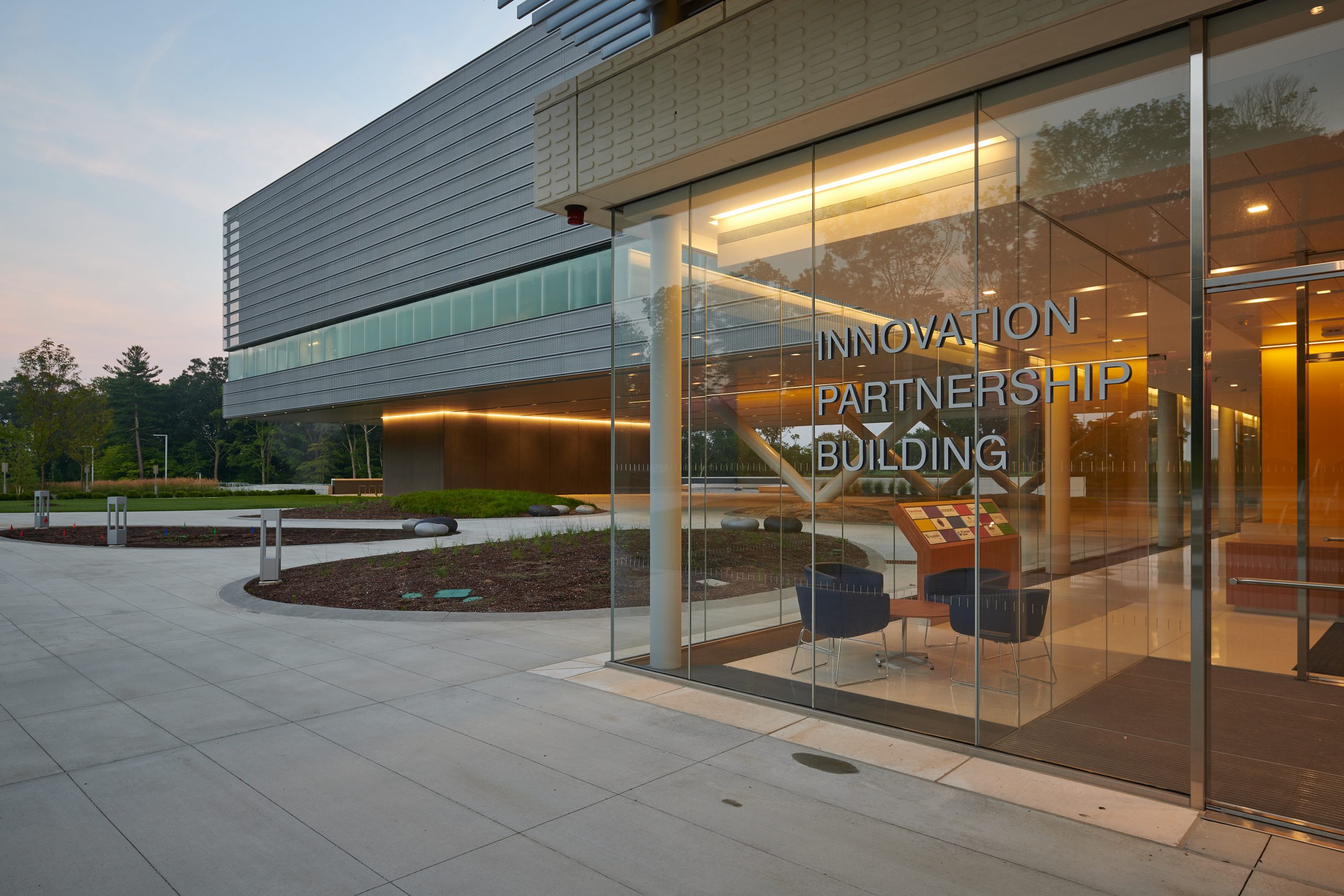Fourth-year UConn medical student Elizabeth “Lizzie” Suschana, 28, in the Class of 2025 from Somers, Conn., is a proud Urban Service Track/AHEC Scholar.
The Urban Service Track is a special, competitive and interprofessional CT AHEC training program that she applied and was accepted to while matriculating into UConn School of Medicine. She has had the unique opportunity of learning and volunteering with other health professional students in the program from across UConn’s schools of medicine, dental medicine, social work, pharmacy, nursing, and also physician assistant students from Quinnipiac University too, while doing free community-based health care in Hartford, and coordinating student-run health fairs and other urban service events. She helped support CT AHEC’s 2023 reengagement with farms in rural communities that were slowed during the ongoing pandemic.
“The Urban Services Track is really good at pushing us out of our comfort zones whether it’s in a new urban care setting or teaching us leadership skills. I’ve grown so much academically and professionally thanks to the program,” says Suschana. “I’ve learned a lot of different health care provider approaches to patient care, especially from the nursing students who excel at communicating with patients.”
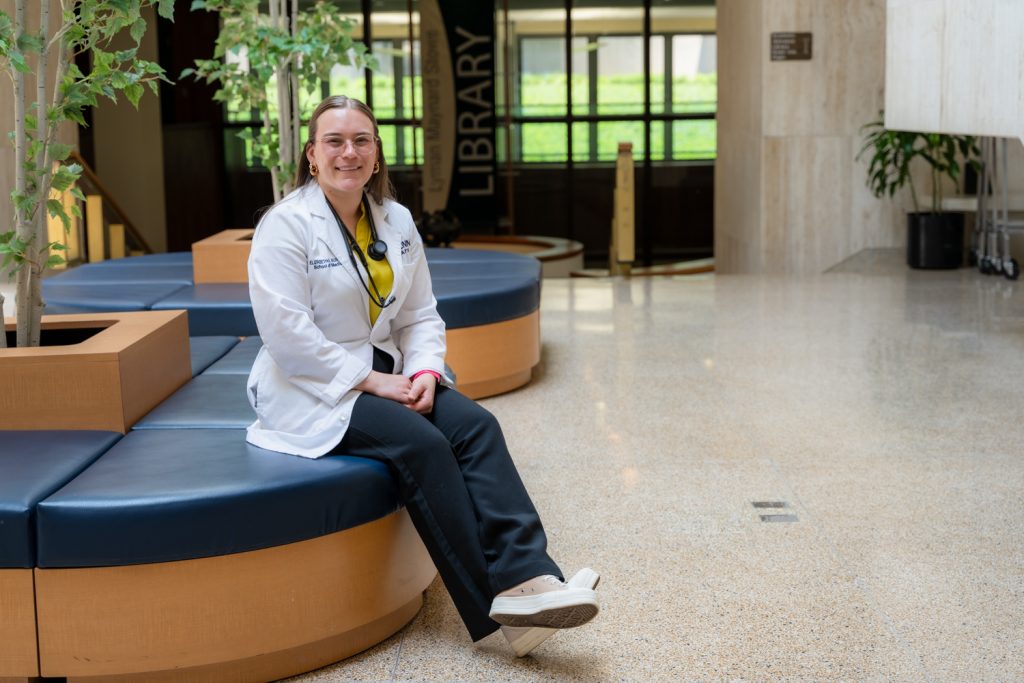
Suschana was even honored with a 2024 Leadership Award for her service in the community and larger Urban Service Track program.
“It’s really rewarding to do community service and to have your hard work recognized. But being on the front lines to see the immediate impact you are having on underserved people and groups, and how appreciative they are, is truly an amazing reward in itself.”
In June 2024, the Urban Service Track/AHEC Scholars hit their $1 million milestone in its history since 2007 of UConn students giving back to the community with free health care screenings, health promotion education, and referrals to dental and medical safety net agencies.
“It’s a really big deal!” says Suschana. “This providing of $1 million in free care inside the community puts the power of the Urban Service Track program all in perspective. The work that UST students, faculty and staff put in for the community is incredible. Hitting the $1 million mark reminds us of all the coordination that goes into this program on the front lines and the time of UConn students giving back in the community. It really shows the widespread impact of the Urban Service Track and its Scholars since its launch.”
Suschana adds, “This validates our program’s positive influence on the most vulnerable people of Connecticut. Big disparities in health care and access exist in the Hartford area. For example, a lot of people can’t miss time from their job or don’t have transportation to get to the doctor’s office. To bring care to them inside their communities is really important!”
Suschana believes what is most unique about UST is the program’s work in partnership with community members and organizations to figure out what the community really wants and designs programming for them: “The community know what they want and need, and UST really offers personalized community care.”
The Associate Dean for Primary Care, Anton Alerte, MD sees “the work in these community health fairs as an extension and a synthesis of all the hard work these students put into their classroom studies. There they learn not only about the biology of health but also the societal influences that affect that health. Through community-based experiential training, Urban Health Scholars take that knowledge and use it as a tool to address the needs of their community. I couldn’t be prouder of their efforts,” says Alerte.
Suchana says there is a misconception that underserved communities don’t value their health. But she stresses that they do value their health but often have significant barriers to accessing care. “UConn and its students are the bridge connecting them to the health care resources and social services they need from right inside their community.”
Suschana is not only an Urban Scholar, but also a student athlete. She played Division 1 lacrosse at the University of New Hampshire. She then upped her game and moved to England to earn her master’s degree in clinical nutrition at the University of Nottingham. She then decided to return to her home state to begin UConn medical school and be close to her family.
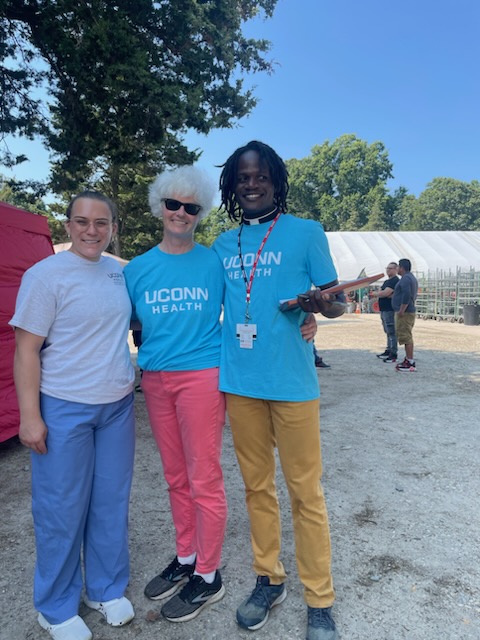
“I joined the UConn medical school and CT AHEC Urban Scholar family. A family is a perfect way to describe exactly what UConn is. I have met a lot of mentors and friends who are so passionate about medicine, education, and community service outside our medical school’s walls,” says Suschana.
What’s next for this Urban Scholar and future MD?
“It’s crazy that in May I will be graduating medical school as a new UConn doctor,” she says.
Suschana also heartwarmingly recalls one standout community service event encounter with a young mother at a health fair event. She wanted to do the offered free health screenings but was juggling her two kids.
“I brought her over to do her screenings with a fellow student, and offered to watch and play with her children so she could focus on herself and her health for a few minutes,” Suschana says. “A few minutes that could really be lifechanging if she was high-risk for a condition like heart disease or diabetes. This community interaction is a strong reminder of the social barriers that really exist for women accessing care, we really need to address these issues!”
This community health care experience and her medical school training has inspired Lizzie to soon be applying to residency training programs in the field of OB/GYN.
“The field of OB/GYN can be the most beautiful in the world, but it also can be complicated or heartbreaking. I want to help women and be a strong force for advocating for them and their health care needs,” she stresses.
“I would 100 percent recommend UST to incoming medical students and other health professional students at UConn. It’s a unique program and experience to learn from other health professional students and gain experience in caring for underserved communities. It’s so important to improving underserved populations care and for learning to be a good patient care provider for all, no matter where they live.”
Suschana concludes: “It’s an unmatched experience!”
We can’t wait to see what the future Dr. Suschana does next, along with her other Urban Scholars from UConn. Thank you for your community service and partnership!
About the Program
The Urban Service Track/AHEC Scholars Program is designed to produce a cadre of well qualified health care professionals through prevention and primary care in Connecticut’s urban underserved communities. As Urban Health/AHEC Scholars, participants represent a select group of students enrolled in the UConn Schools of Pharmacy, Nursing, Medicine, Dental Medicine, Social Work, and Quinnipiac University’s Physician Assistant Program.
A total of 60 Urban Health/AHEC Scholars, eight to twenty students per school, are selected each year from among qualified applicants who have a demonstrated commitment to service. They gain valuable exposure to the complex and challenging issues of health care in the inner city. A strong mentorship component supports learners as they navigate their own personal and professional development.
Students develop competencies in the following areas: culture and linguistics; population health; health policy; advocacy; health care financing and management; leadership; community resources; interprofessional health care teams; and quality improvement.
Learn more about the program run by CT AHEC based at UConn Health.
